When I was in prison, I dreamed of one day regaining a sense of purpose and value. I wanted to do something that could make a difference in the lives of others.
I journaled about how I’d never forget where I came from, how I’d fight for my brothers and sisters in white once I got home.
I was released in January 2022 and quickly forgot about all those big dreams. I was scared to talk about prison. I was struggling to find housing and employment. I was trying to repair relationships and throw myself into a program of recovery.
It was overwhelming, and I forgot that just a few months prior, I’d prayed for the mundane inconveniences of being stuck in traffic or having too many tasks to juggle in a 24-hour period.
My dreams were suddenly silenced. I was afraid I’d never escape the past or be forgiven and accepted. I stopped talking and tried to blend in.
Turning Up the Heat
About a year after my release from a Texas prison, I heard about a group of women who were not only talking about their incarceration; they were doing something to help the women they’d left behind at the rickety unairconditioned units of the Texas Department of Criminal Justice.
These women, led by Marci Simmons and Jennifer Toon, called themselves Lioness Justice Impacted Women’s Alliance.
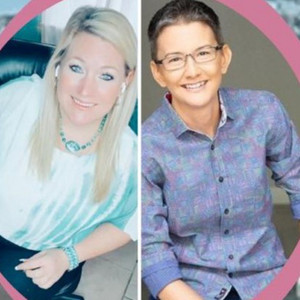
“Lioness Justice Impacted Women’s Alliance is an organization led by currently and formerly incarcerated girls and women in Texas with the purpose of ending the incarceration and systematic devaluing of the girls and women within our criminal legal system,” the nonprofit’s mission statement reads.
The group envisions a society where the formerly incarcerated and their sisters are spiritually, emotionally, mentally, and physically free from all forms of violence and harm in the criminal legal system.
“Our vision can be achieved through radical advocacy, education, community engagement, grassroots organizing, and legislative action,” the Lioness website states.
Marci and Jennifer were doing more than the popular TikTok videos about how to construct a prison cheesecake. They were showing the public what the inside of a cell looks like and explaining the institutionalized trauma and harassment that occurs constantly behind the walls. Through their On the Rec Yard podcast, Marci and Jennifer were explaining in depth what it’s like to go through a lockdown, a strip search, and medical transport. They were talking to guests about things like abuse and violence in the Texas juvenile justice system.
And they were talking about it in front of the Texas Legislature.
I had to be part of this.

It didn’t matter to the Lionesses that I’d been to prison or what I’d done to get there. They welcomed me and put me to work.
The common thread among the women of Lioness is that we know what it’s like to be confined in a small cell or a raucous dorm. We lived through the power outages, ice storms, and heat waves and made it to the other side, but some of our comrades haven’t fared so well.
Together, we believe it’s our responsibility to speak loudly for justice.
And when the Texas legislative session began Jan. 10, Marci and Jennifer turned up the heat.
Legislative Testimony
A team of Lionesses and members of the Statewide Leadership Council — which advocates for incarcerated men and women — provided testimony on several bills related to the Texas Department of Criminal Justice during the 2023 session.
Two of the bills passed: Senate Bill 1146, which provides improvements for the medical transport of incarcerated women, and House Bill 2708, which says that in-person visitation in TDCJ can never be replaced with only-tablet visits.
The following bills, for which Lioness advocated, did not pass:
● House Bill 305, related to the expansion of medically-recommended intensive supervision.
● House Bill 353 to improve individual treatment plans.
● House Bill 1064, the “Good Time Bill.”
● House Bills 480, 812, and 813, related to administrative segregation (solitary confinement) reform.
● House Bills 1213, 1355, and 1708, related to air conditioning and temperature control.
● House Bill 967, related to increasing access to women’s programming.
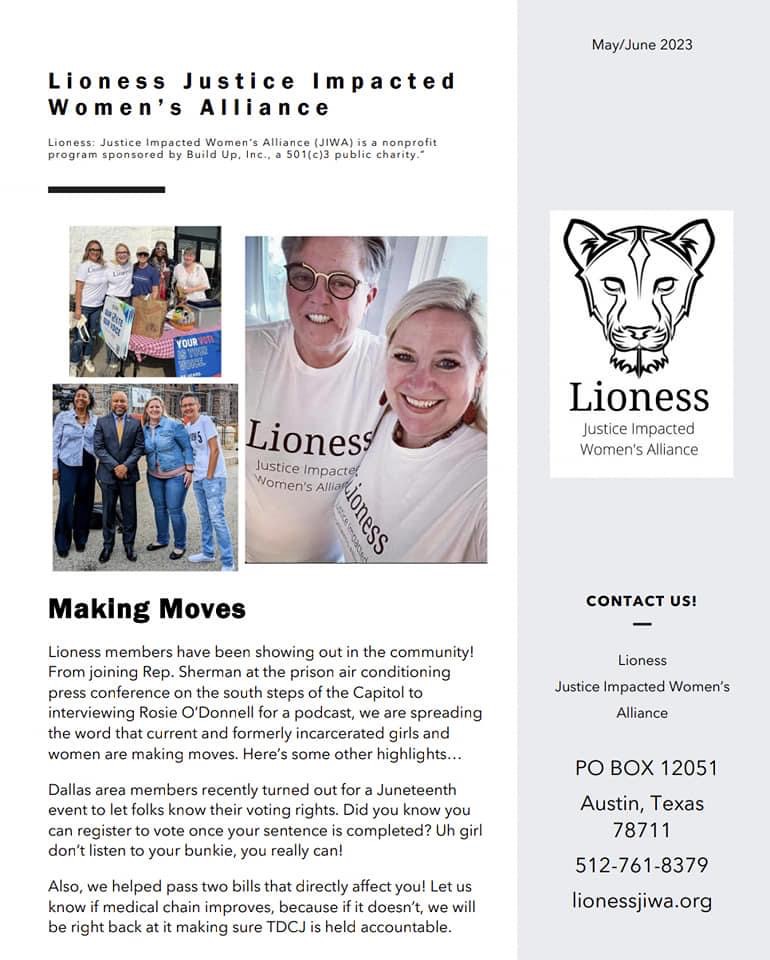
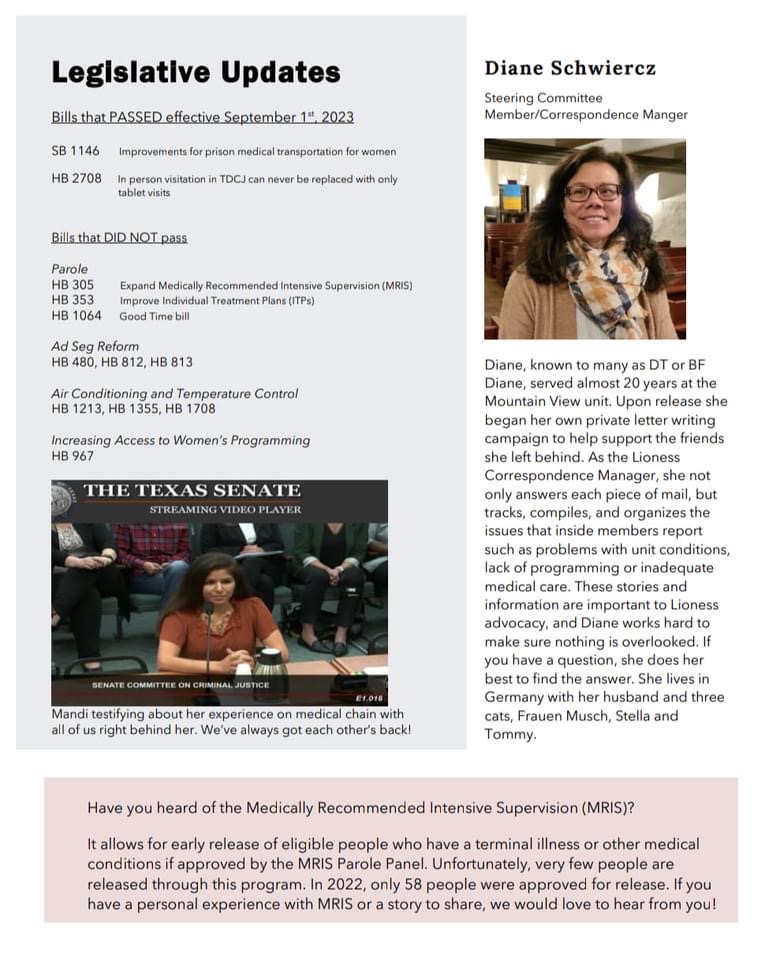
As the brutal Texas summer heated up and the legislative session wound down with two special sessions called on property taxes, the fight to protect our brothers and sisters on the other side of the razor wire intensified.
Making a Difference
Although the legislative session ended without action on any air conditioning measures (the House voted in favor of protecting human life and civil rights; the Senate shut us down), Marci and Jennifer, along with hundreds of other men and women in Texas and beyond, continue to meet with legislators.
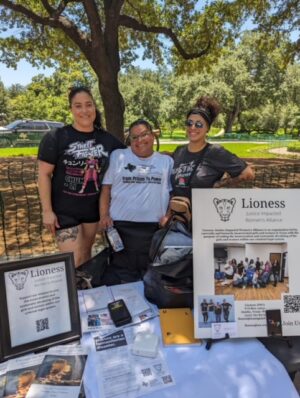
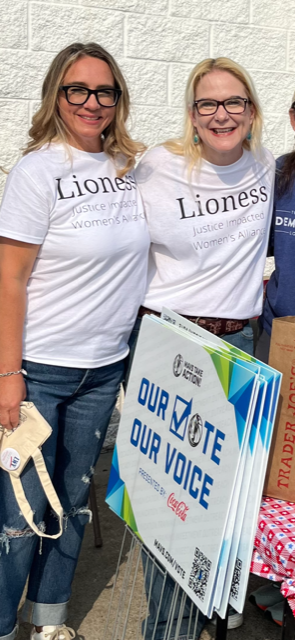
Lioness has multiplied in support this summer as its members encourage Texans to keep the prison air conditioning movement in the forefront.
Some prison cells reach 117 degrees in the summer months and have no ventilation. Incarcerated individuals pour water on the floor and lie down in it for relief from the heat. Bottled water prices increased this summer and it’s not uncommon for the plumbing and sink water to be shut off temporarily at the older units. Some dorms have coolers of ice water that are refilled once a day, but that doesn’t offer relief for those in solitary confinement or a cell block building (where individual cells have a faucet, sink, and toilet).
Lioness has asked for a mandatory maximum temperature of 85 degrees in the summer months to prevent loss of life, create a better working environment for the already-understaffed prisons, and reduce the millions of taxpayer dollars being spent on wrongful death and civil rights lawsuits.
A temperature of 85 degrees is still hot but would make huge strides in providing relief from the brutal heat.
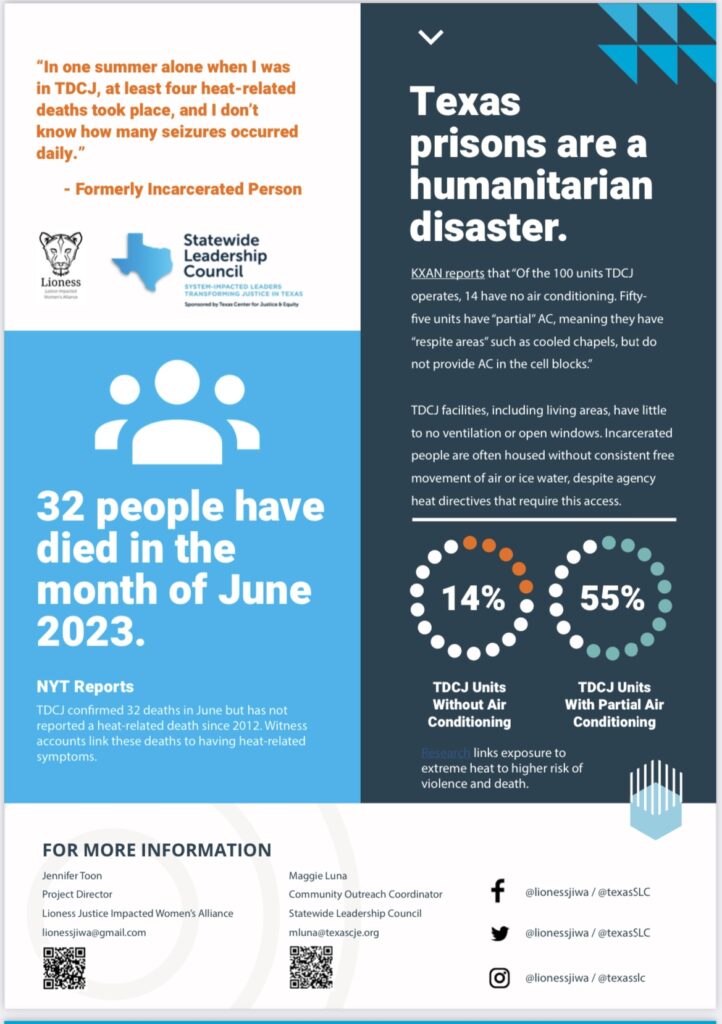
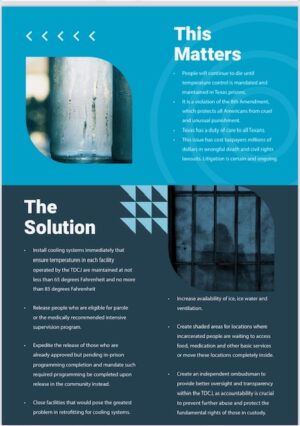
Of the 100 units TDCJ operates, 14 have no air conditioning. Fifty-five units have “partial” AC, meaning they have “respite areas” such as cooled chapels, but do not provide AC in the cell blocks.
However, the TDCJ livestock — such as pigs being prepared for slaughter — are housed in climate-controlled facilities.
“It is essential to recognize that 97 percent of incarcerated men and women will eventually come home to their communities,” according to a statement released by Lioness and the Statewide Leadership Council. “Willfully disregarding their humanity impacts the mental health, rehabilitation prospects, and the overall well-being of incarcerated human beings. So ask yourself … How do you want them to return to your community? Feeling valued as a human being or less than a pig?”
Read the full Lioness and Statewide Leadership Council statement on Texas prison heat.
This statement hit me right in the heart. It’s all I ever wanted — to feel valued, to feel like I could be part of something big. Through Lioness, I got those things. I got my sense of purpose back.
An “85 to Stay Alive” rally was held on the steps of the Capitol Building in Austin in July. Texas Rep. Carl Sherman appealed to his constituents and fellow elected officials, quoting Hebrews 13:3: “Remember those who are in chains, as if imprisoned with them, and those who are ill treated, since you are also in the body.”
“May God grant the jailers and jailed supernatural strength to endure the state furnace,” Sherman said at the rally.
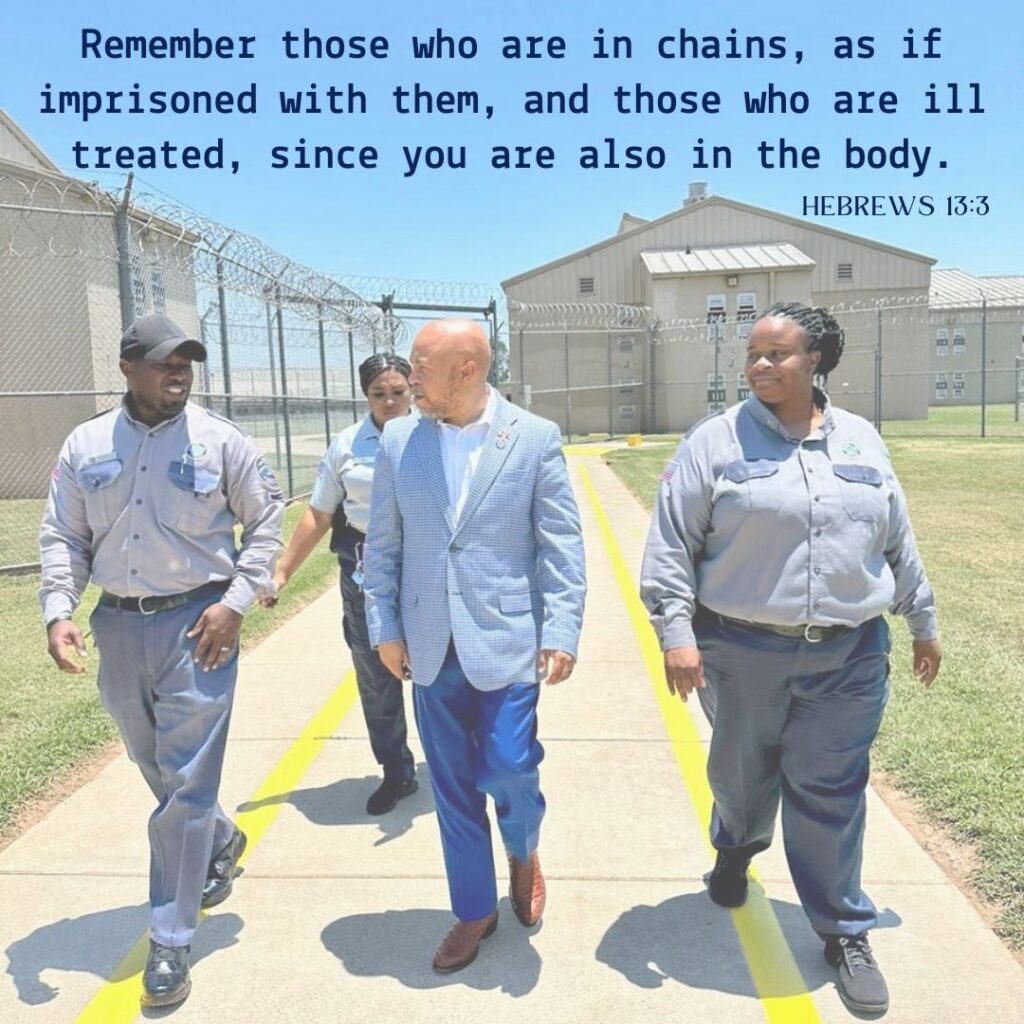
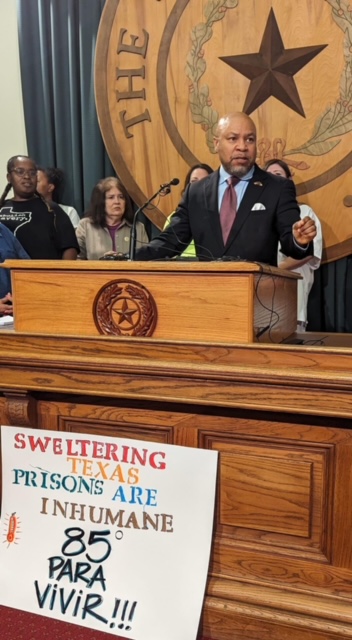
Shortly thereafter, some progress was made. Small air conditioning units were installed in three buildings at the Dr. Lane Murray Unit in Gatesville. I got a letter from a friend at the Hilltop Unit that windows were being tinted. Incarcerated persons who hadn’t been able to have recreation for almost two months were given an hour outside, which in some cases, may be cooler than their solitary unventilated cells.
Texas temperatures continue to remain steady at 107 degrees at the time of this writing.
TDCJ reported 562 inmate deaths last year and 262 deaths year-to-date by mid-July 2023. Thirty-two inmate deaths were reported by TDCJ in the month of June 2023, and none have been classified as heat-related. We know of numerous witness accounts suggesting heat was a factor in more than a dozen deaths this summer. TDCJ has not reported a heat-related inmate death since 2012.
Tona Southards-Naranjo, whose son Jon Anthony Southards died in June at the Estelle Unit, appeared at the “85 to Stay Alive” rally, wearing prison whites with her son’s name on them. She sat in a mock cell in the baking sun to gain a better understanding of what her child’s last moments might have been like.
The Lioness women will gather Aug. 19 for a candlelight vigil in Gatesville to honor Jon Anthony Southards and the others who have died in Texas prison cells.
We’ll have a presence at the Texas Department of Criminal Justice board meeting on Aug. 25 in Galveston.
In the meantime, as TDCJ converts to an all-electronic mail system, we’re helping mothers, fathers, grandparents, and children of the incarcerated who don’t know how to set up phone accounts or use the complicated prison messaging system. We write to our incarcerated brothers and sisters because we know what it’s like to be where they are.
We haven’t forgotten. And we won’t stop fighting for them.
Formerly incarcerated Texas citizens can vote when they’ve completed parole supervision. They can volunteer, advocate, and raise awareness at any time, from any place.
For more information:
Contact your state legislators: https://wrm.capitol.texas.gov/home
Learn more about Lioness Justice Impacted Women’s Alliance: https://www.lionessjiwa.org/
Learn more about Statewide Leadership Council: https://www.texascjc.org/statewide-leadership-council
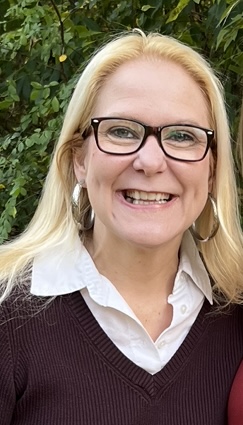


1 Comment
The Other Side of the Razor Wire - Minutes Before Six
March 3, 2024 at 6:01 pm[…] in May 2023, I joined the advocacy group Lioness Justice Impacted Women’s Alliance and it was with this group of heroines that I traveled to Gatesville in […]